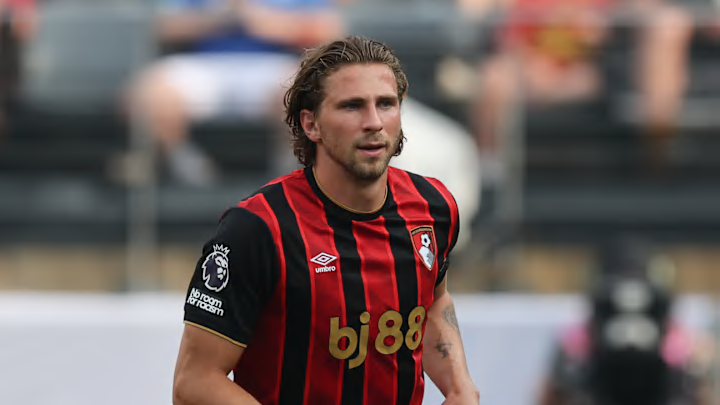Zabarnyi’s arrival raises tough questions about Marquinhos’ future at PSG
PSG are reshaping their identity after Kylian Mbappé's departure, and nowhere is that more evident than in defense. The surprise addition of Ukrainian center-back Illya Zabarnyi may not have made international headlines, but it has sparked real intrigue in Paris. Zabarnyi’s arrival signals more than a youth investment—it might be the clearest indication yet that PSG is preparing for life after Marquinhos. The long-serving captain still commands respect, but in this new era under Luis Enrique, respect doesn’t guarantee minutes.

PSG's quiet defensive reset
At 21, Zabarnyi is already a seasoned international with Premier League experience under his belt. He’s not flashy, but he’s incredibly efficient. Calm on the ball, tactically aware, and physically commanding, Zabarnyi fits perfectly into Luis Enrique’s vision for a high-pressing, ball-dominant PSG.
His signing marks a departure from past PSG strategies, which often leaned on marquee names and experience. Instead, this move feels methodical—a choice aimed at building a younger, more balanced backline with long-term potential. The fact that Zabarnyi was brought in alongside emerging talents like Bradley Barcola and Kang-in Lee further underlines the direction the club is taking.
This isn’t just a depth signing. With Milan Skriniar, Lucas Hernandez, and Danilo Pereira already in the squad, PSG didn’t need another center-back unless there was a specific plan in place. Zabarnyi’s profile suggests that plan could involve redefining the backline—possibly without Marquinhos as the automatic first name on the team sheet.

Marquinhos: Still respected, but no longer untouchable
Let’s be clear: Marquinhos is still an important figure at PSG. He’s worn the armband with pride, led with humility, and rarely let the club down. Since arriving in 2013, he has grown into one of the most recognizable and respected defenders in Europe. But even icons evolve—or get overtaken.
Recent seasons—especially in high-pressure Champions League nights—have exposed cracks. Critics have pointed to a lack of physical presence and leadership when it mattered most. The heartbreaks against Real Madrid and Bayern Munich linger in the collective memory. Marquinhos, fairly or unfairly, has become a symbol of those collapses.
Luis Enrique demands pace, anticipation, and directness from his defenders. Zabarnyi ticks those boxes in a way Marquinhos, now 30, may struggle to match consistently. That doesn't mean Marquinhos is on his way out. But it could mean fewer guaranteed starts and a more rotational role, especially if Zabarnyi adapts quickly.
It also raises an uncomfortable truth: PSG is no longer building around its old guard. The focus is on athleticism, tactical flexibility, and players who fit a very specific style of play. In that model, Marquinhos may no longer be a guaranteed fit.

A glimpse into PSG’s future
Zabarnyi’s signing looks like more than just a summer squad move—it feels strategic. PSG is clearly trying to evolve its identity post-Mbappé, and that means reshaping the defense too. Younger, hungrier players who fit the modern mold are being prioritized. Zabarnyi is a clear reflection of that shift.
The Ukrainian center-back has already shown he can thrive in high-stakes environments. His maturity belies his age, and he rarely looks rattled under pressure. For a PSG side that has often folded in key moments, that mental resilience could prove invaluable.
If Zabarnyi establishes himself quickly, the implications are massive. Marquinhos could find himself relegated to a secondary role, especially in the biggest games. That could have ripple effects for the locker room dynamics, captaincy discussions, and PSG's long-term leadership structure.
Marquinhos could still have a role to play, whether as a mentor, rotation option, or even in a tactical reshuffle. But for the first time in years, his place in the XI isn’t a given. And that alone signals change. The club is no longer afraid to phase out even its most loyal soldiers if they no longer align with the project.
The broader takeaway is this: PSG is laying the foundation for something new. This isn’t just about one transfer. It’s about a larger movement, a cultural shift in how the club identifies and develops its leaders. Zabarnyi might not wear the armband anytime soon, but make no mistake—he represents the future.
Whether this marks the beginning of the end for Marquinhos or simply a new phase of his PSG journey, one thing is certain: Illya Zabarnyi isn’t just here for the ride. He’s here to compete. And that competition could reshape PSG’s defense for years to come.

